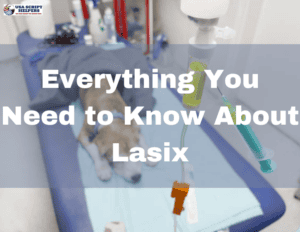All dog owners want to make sure their animals have happy, healthy lives. But much like people, dogs may experience joint problems as they age or as a result of specific medical diseases. Thankfully, some drugs can help control these ailments and enhance the quality of life for our dogs. Previcox is one such drug that is becoming increasingly well-known for helping dogs’ joints stay healthy.
Understanding Canine Joint Health
It’s important to comprehend the fundamentals of canine joint health before getting into the intricacies of this medication. Like us, dogs have joints that allow for flexibility and mobility. Ligaments, tendons, cartilage, and synovial fluid are some of the parts that make up these joints. Osteoarthritis and other disorders can arise from joint degeneration brought on by these components’ gradual wear and strain.
Osteoarthritis, commonly known as arthritis, is a degenerative joint condition typified by pain, stiffness, and inflammation. Although it usually affects older dogs, younger animals may still have it, particularly if they have a genetic predisposition, are obese, or have had prior traumas. Dogs with arthritis may find it more challenging to engage in daily activities like playing, running, and walking, which can significantly negatively influence their quality of life.
What is Previcox?
It is a nonsteroidal anti-inflammatory medication (NSAID) created especially for dogs called Previcox. The primary component of it is firocoxib, which focuses on and blocks the enzymes in the body that cause pain and inflammation. Veterinarians frequently prescribe it to treat dogs’ osteoarthritis and other joint-related ailments to reduce discomfort and inflammation.
How Does Previcox Benefit Your Dog’s Joint Health?
One of the many advantages of Previcox for joint health is that it is a nonsteroidal anti-inflammatory medicine (NSAID). It enhances the quality of life of dogs with joint problems by decreasing inflammation, controlling discomfort, increasing movement, and improving overall mobility. For this reason, both veterinarians and pet owners find it to be a beneficial option.
-
Reduces Inflammation
Dog joint discomfort and stiffness are frequently caused by inflammation. By preventing the enzymes that cause inflammation, Previcox aids in its reduction. It helps dogs with joint problems move more comfortably and freely by lowering inflammation, which relieves pain and suffering.
-
Manages Pain
Dogs with joint pain may have reduced mobility and a lower quality of life overall. Previcox works well for treating pain brought on by hip dysplasia, osteoarthritis, and other joint disorders. It helps dogs feel better overall by reducing pain and allowing them to participate in physical activities without discomfort.
-
Improves Mobility
Dogs with joint issues may find it more difficult to walk about, resulting in decreased activity and muscular strength. It helps increase mobility by lowering inflammation and pain, enabling dogs to move around more easily and exercise regularly. This increased activity can support general joint health, avoid stiffness, and assist in preserving muscle mass.
-
Enhances Quality of Life
Chronic joint pain can greatly impact a dog’s quality of life. Since Previcox relieves pain and discomfort, it helps improve the quality of life for dogs with joint disorders. It may provide dogs with a happier and more satisfying existence by enhancing their mood, boosting their energy, and increasing their willingness to engage in everyday activities.
-
Long-lasting Relief
With just one daily dosage, dogs can benefit from the long-lasting effects of Previcox, which is known to relieve pain and inflammation. In addition to making it simpler for pet owners to provide the prescription, this convenience guarantees that joint problems in their dogs are consistently and successfully managed.
How to Use Previcox Safely
Although Previcox can be very helpful in treating canine arthritis, it is important to use it appropriately and carefully. Here are some pointers for making efficient use of this chewable tablet:
- Previcox or any other medicine for your dog’s joint pain should only be started by consulting your veterinarian. Your veterinarian can advise your dog on drug administration, dosage, and potential interactions.
- Remember to adhere to the stated dosage guidelines and refrain from overmedicating your dog. Overdosing must be avoided at all costs since it can result in major health problems.
- While your dog is taking Previcox, watch for any indications of negative reactions or side effects. These could be diarrhea, vomiting, appetite loss, or behavioral abnormalities. Get in touch with your veterinarian immediately if you observe any worrying symptoms.
- Give Previcox only to dogs that have a history of gastrointestinal issues or who have a known allergy to NSAIDs. It should also not be administered to dogs younger than six weeks old, pregnant, or nursing.
Potential Side Effects and Risks of Previcox
Previcox, like any drug, has certain potential hazards and side effects, even though most dogs tolerate it well. Pet owners must be aware of these and watch for any negative reactions in their dogs. The following are a few possible adverse effects of this tablet:
-
Gastrointestinal Issues
Although Previcox is designed to reduce gastrointestinal side effects, some dogs may exhibit symptoms, including diarrhea, vomiting, or stomach ulcers. Keep an eye out for any indications of stomach distress, and contact your veterinarian immediately if they do.
-
Renal and Hepatic Effects
Certain dogs may experience kidney and liver problems while using NSAIDs like Previcox, especially if they use them frequently or in excessive amounts. Your veterinarian may advise routine blood work testing to make sure your dog’s organs stay healthy while on medication.
-
Allergic Reactions
Rarely, dogs may react allergically to it and develop symptoms like face swelling, rashes, or trouble breathing. If your dog has an allergic reaction, call a vet immediately.
-
Increased Risk of Bleeding
Certain canines are more likely to bleed as a result of NSAIDs’ interference with blood coagulation systems. Dogs who take other drugs that influence blood coagulation or who have a history of bleeding issues may be more at risk.
-
Other Potential Side Effects
When using Previcox, some dogs may become lethargic, lose their appetite, or exhibit behavioral abnormalities. Even though these adverse effects are less frequent, you should monitor them and inform your veterinarian if they arise.
Previcox is Vital to Your Dog Comfort
One promising treatment for osteoarthritis in dogs is Previcox. It relieves discomfort, enhances mobility, and lowers inflammation in dogs suffering from joint pain. Pet owners can contribute to their dogs’ happy, active lives by working with a veterinarian and adhering to treatment recommendations.
Visit USA Script Helpers to learn more about the advantages of Previcox for dogs. Pet owners can purchase this medication, speak with professionals about it, and learn more here. By maintaining the health of their joints, pet owners may contribute to their pets’ happy, pain-free lives.


















